
- Home
- DescriptionNews
Room for improvement in Cancer Anywhere
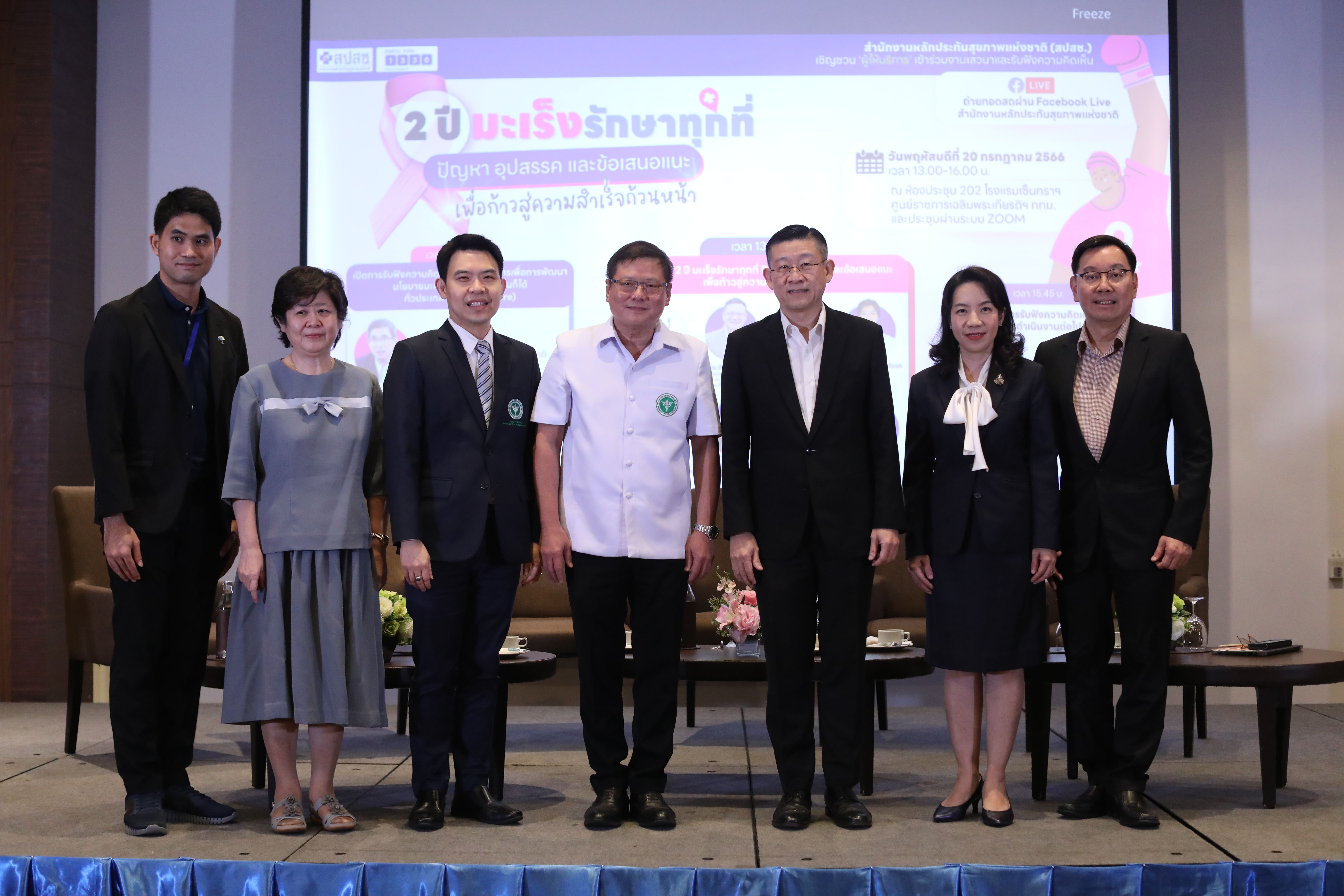
Room for improvement in Cancer Anywhere
Medical experts suggest there is room for improvement in the Cancer Anywhere program. Such improvement can be done by creating a network of healthcare units with an emphasis on early screening and treatment from the early stages of cancer.
Cancer Anywhere is a health program launched in January 2021, aiming to speed up referral procedures, allowing patients to access care in advanced hospitals faster and in the time of care needed.
Though the program has increased patients’ access to treatment, regardless of their location, experts suggest the program can be improved to increase accessibility and convenience.
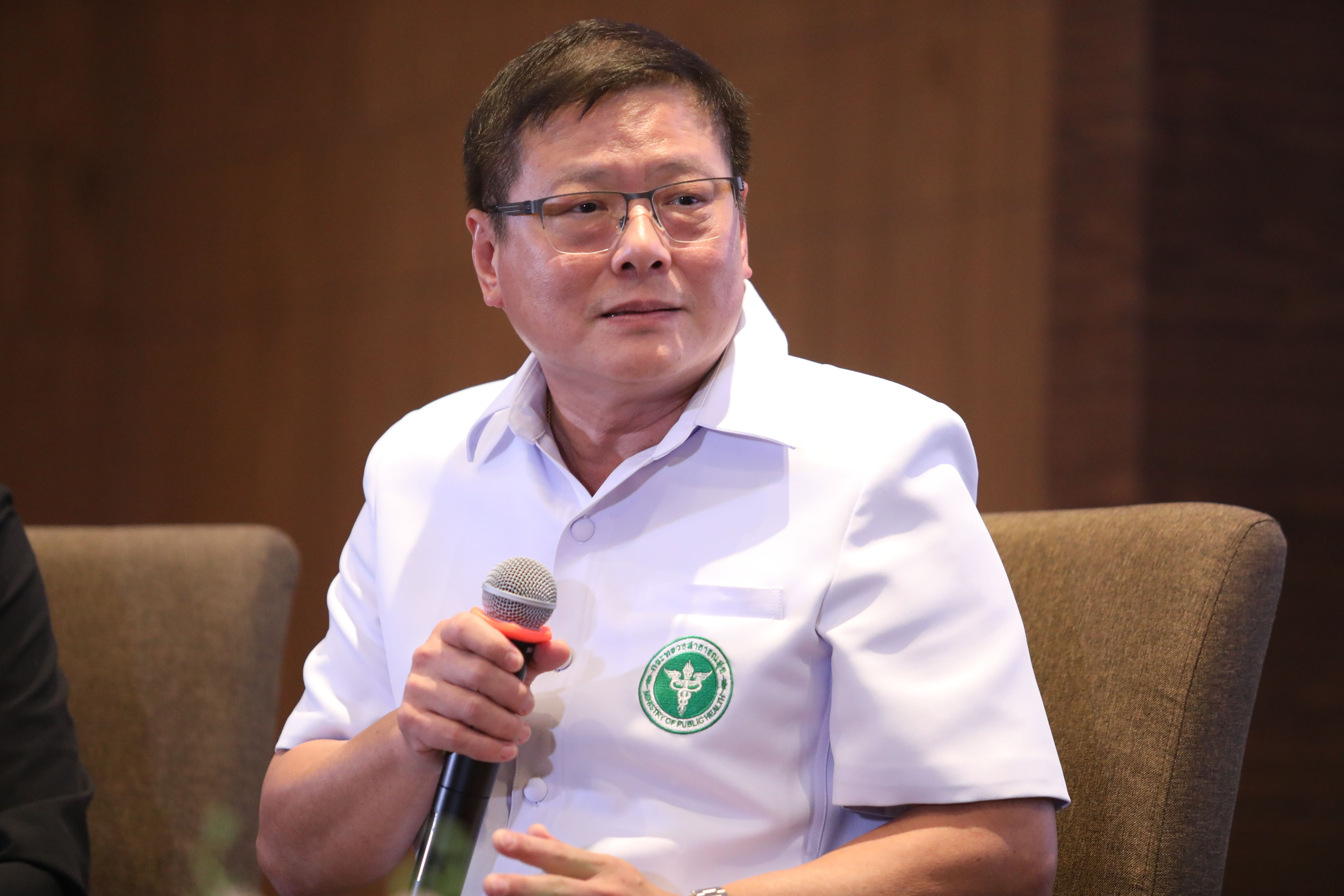
“It is common that when one problem is solved, another one may arise,” said Dr Teerachai Songkiatkawin, Deputy Chairman of the Cancer Service Development Committee under the Ministry of Public Health.
In the Bangkok area, where the program is piloted, there was an assumption that patients from other regions would flow into the city for treatment. But the number of patients in the capital does not increase, indicating that many patients there are unable to access the healthcare system.
“The health system operation in Bangkok does not function as a network, and different systems are used to address the congestion of patients, such as the referral system, telemedicine, and medication delivery to homes,” said Dr Teerachai.
“It might be necessary for healthcare units in Bangkok, like medical schools, to collaborate to create a coordinated service network. Otherwise, if patients are overcrowded and waiting times for treatment increase, they won't be able to access treatment as before.”
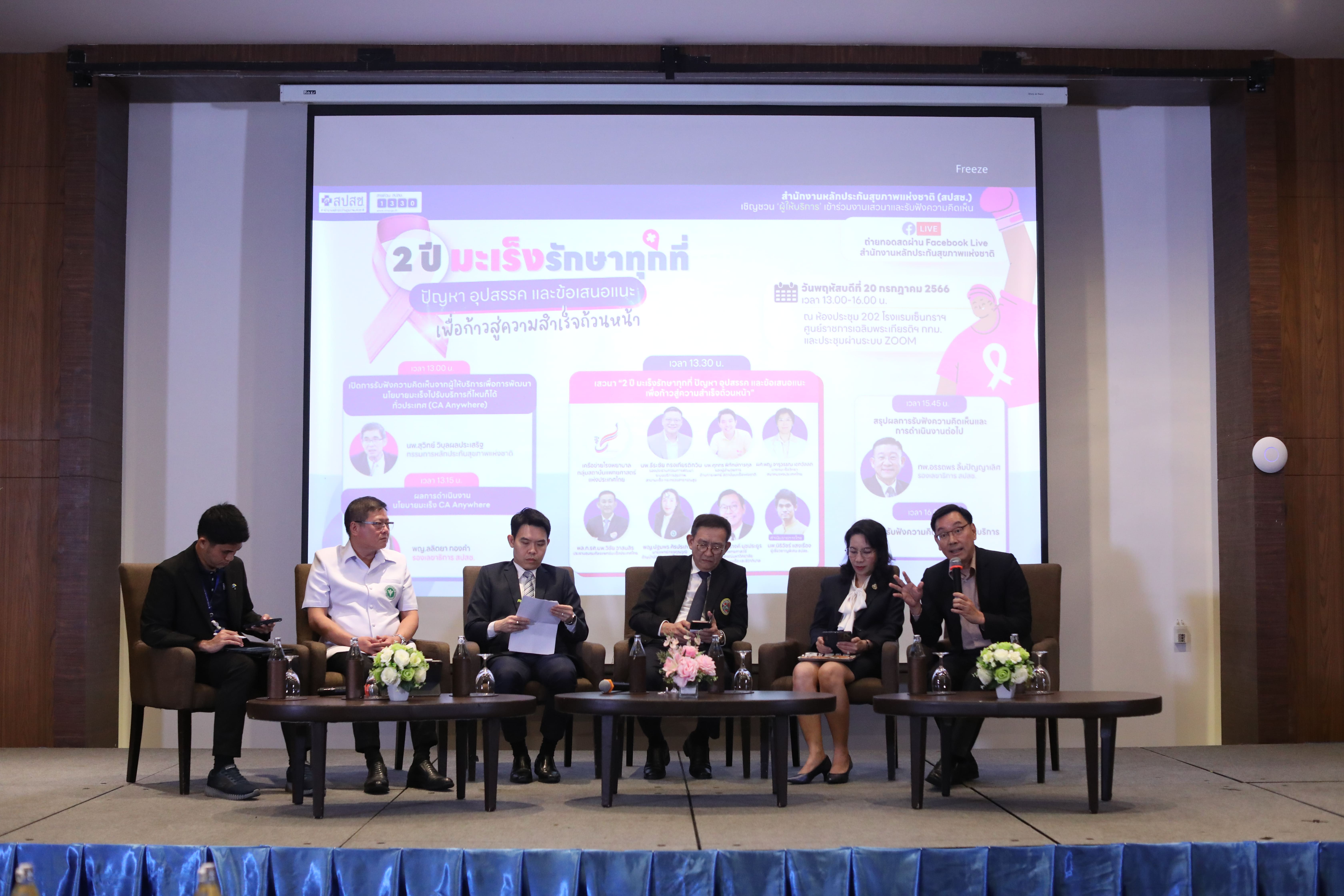
Address palliative care
Dr Teerachai added that the Cancer Anywhere program should give more importance to end-of-life care as data indicates that 20% of patients in public general hospitals are in the final stage of their illnesses.
However, only a small portion of this group, about 18-20%, receives palliative care. This means that most patients receive treatment, but it is not certain whether that treatment is the best option for them.
“We sometimes focus only on the financial aspect, such as reimbursement or how much the health services will be covered. However, if we address end-of-life patients, it might create immeasurable value for both the patients and the healthcare system and relieve the burden on the system.”
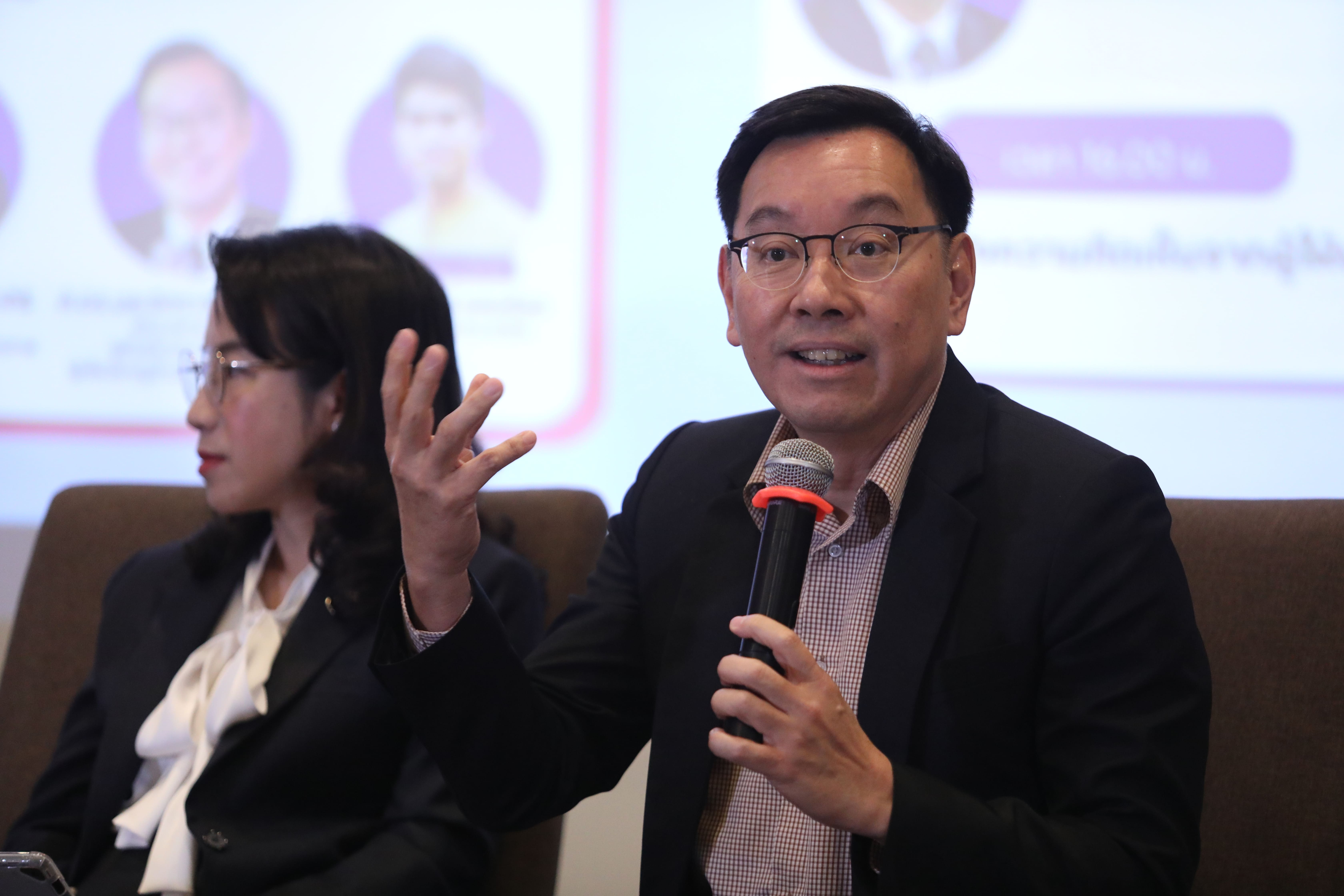
Dr Issarang Nuchprayoon, an expert in cancer and end-of-life care at the Faculty of Medicines of Chulalongkorn University, said that many Thai people understand the concept of a peaceful death.
“If we engage in conversations with cancer patients from the beginning, we might find that they choose to peacefully live with cancer from the start,” he said.
“If patients desire a peaceful death, they should be able to enter palliative care directly. Those who wish to receive treatment can pursue it. This approach can lead to better care for those seeking treatment because the waiting queues would decrease.
For those in palliative care, they would not have to endure painful treatments, leading to a reduced burden on the healthcare system.”
Improve information access
Dr Supakorn Pitakkankul, Deputy Director of the National Cancer Institute, stated that there is a need to improve public relations of the Cancer Anywhere program, to promote and explain the program to health providers and the public.
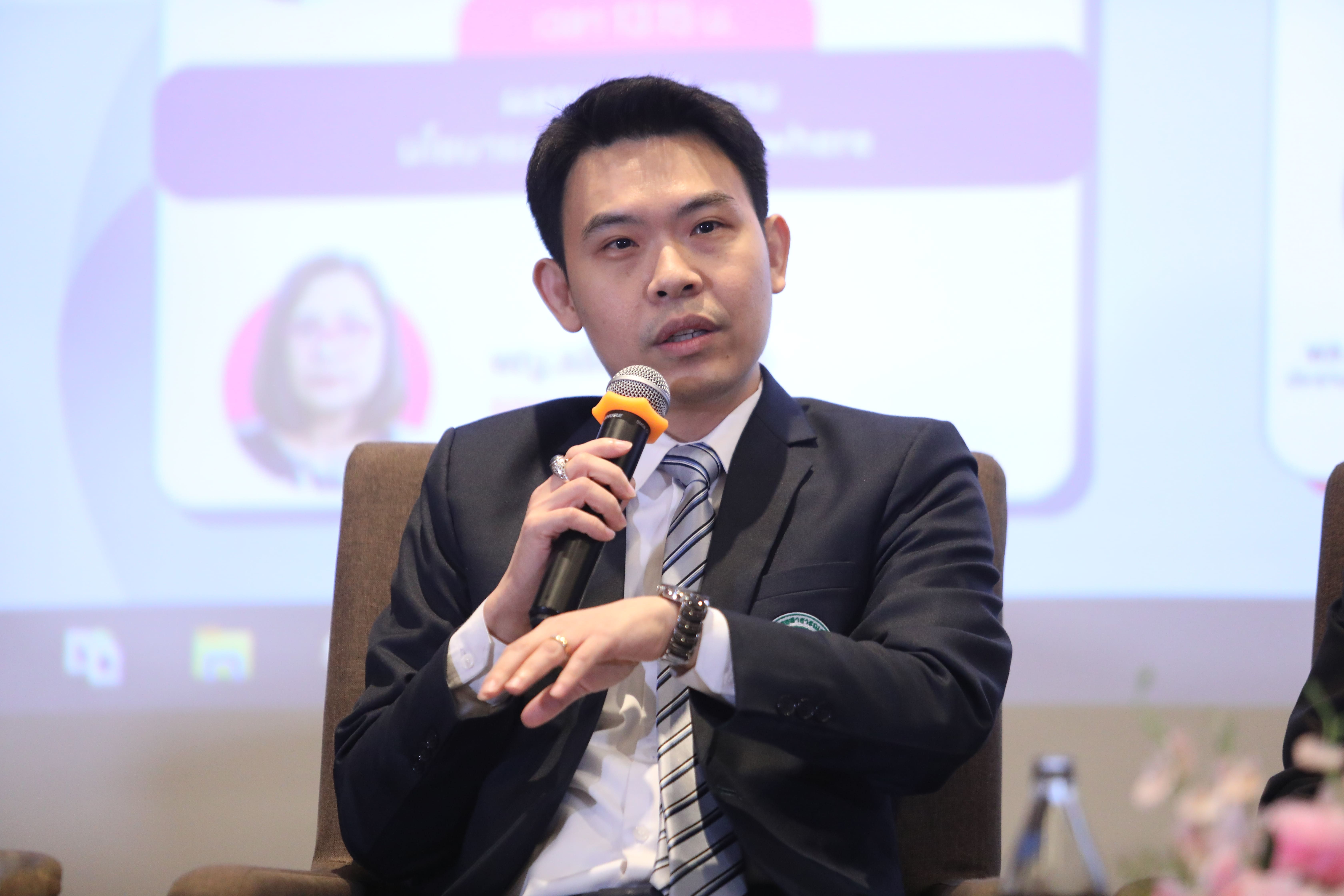
Many healthcare units or practitioners are not aware of the program, resulting in many patients revisiting their registry hospitals to request referral letters.
He added further that with appropriate payment rates, the program will attract high-capacity hospitals to participate in and enhance the effectiveness of the program.
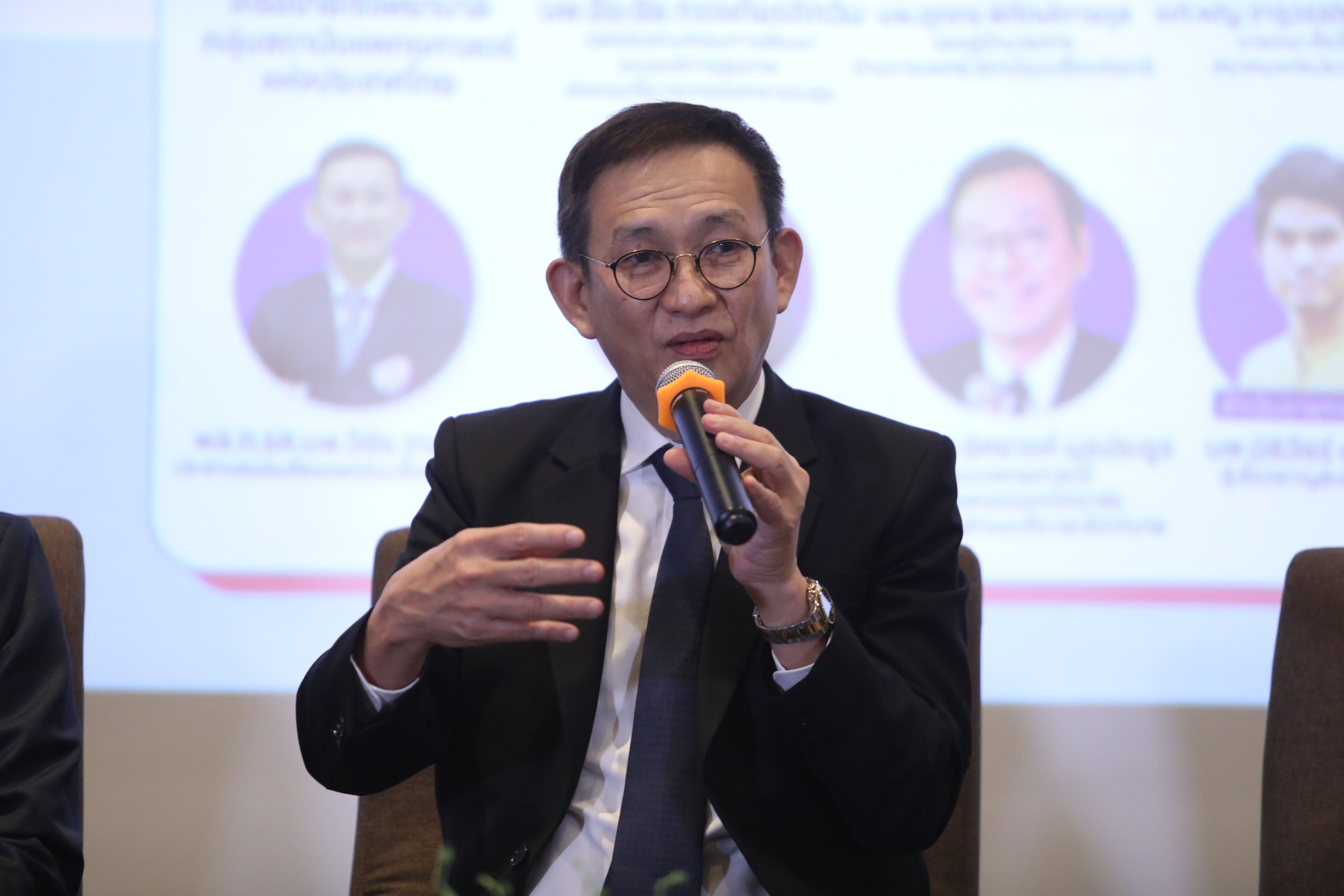
Dr Wichai Vassanasiri, president of the Society of Surgical Oncology, emphasized that it is essential to inform patients clearly about which department they should go to during the inter-hospital transfer procedures.
Sometimes, patients are sent to the hospital without knowing where they should go, he said. If the information is communicated clearly, it would help reduce some unnecessary steps.
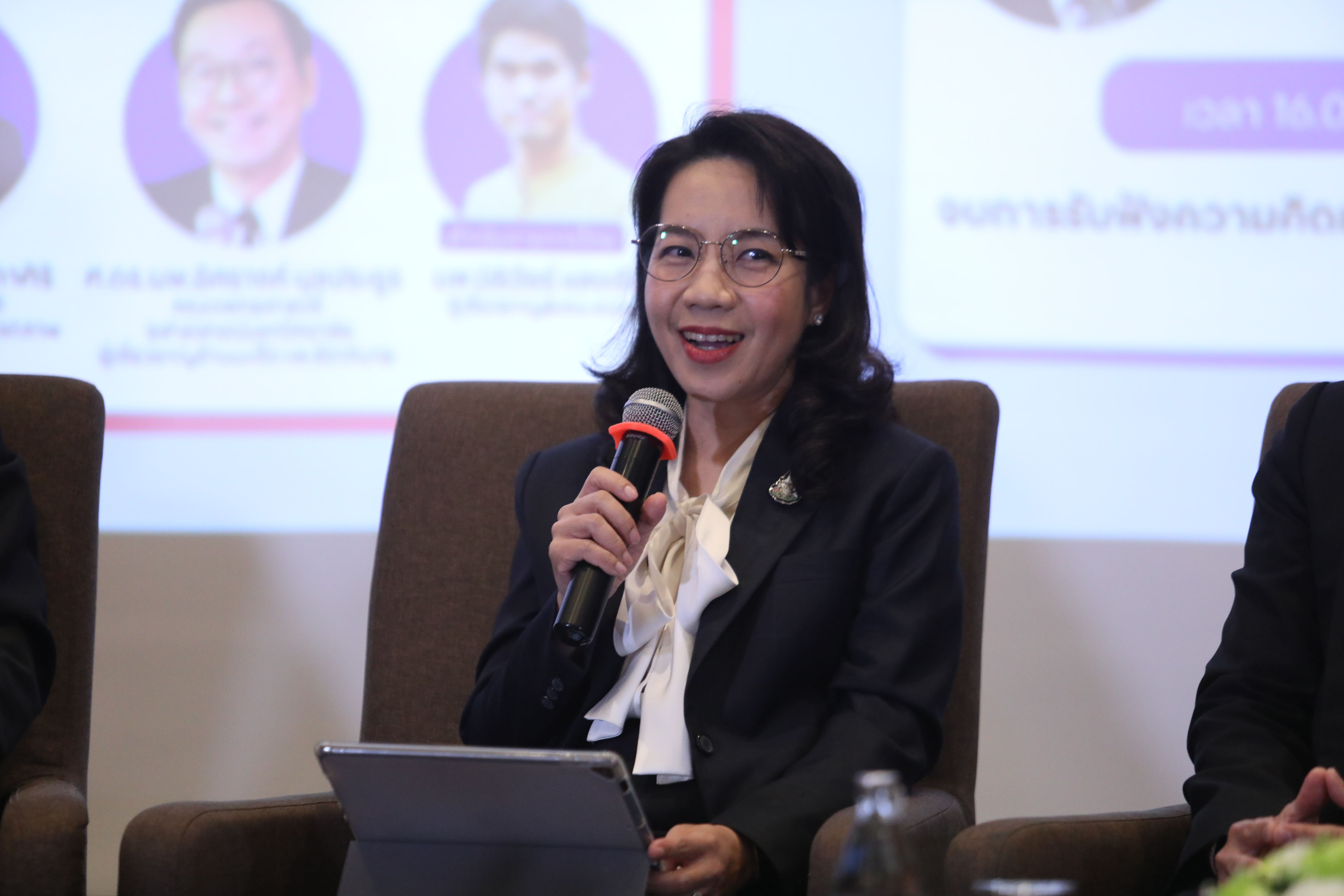
Dr Pattamporn Siriprapasiri from the Thai Association of Radiation Oncology pointed out the need to improve data sharing among hospitals, which can speed up referral procedures.
The National Cancer Institute is developing a standardized data program. In the future, hospitals can adopt this program and develop Hospital Information Systems (HIS) with data according to these standards, connected through APIs, to avoid duplicating information in multiple applications.
However, for hospitals not under the Ministry of Public Health, it remains a challenge as each hospital has its applications and databases.
There is an effort to gather data through the Big Data Institute (BDI), which data can be transmitted through this system or the Thai Cancer Based program.
Dr Pattamporn suggested that the databases can be integrated using the standards set by the National Cancer Institute, making the referral process more convenient.

